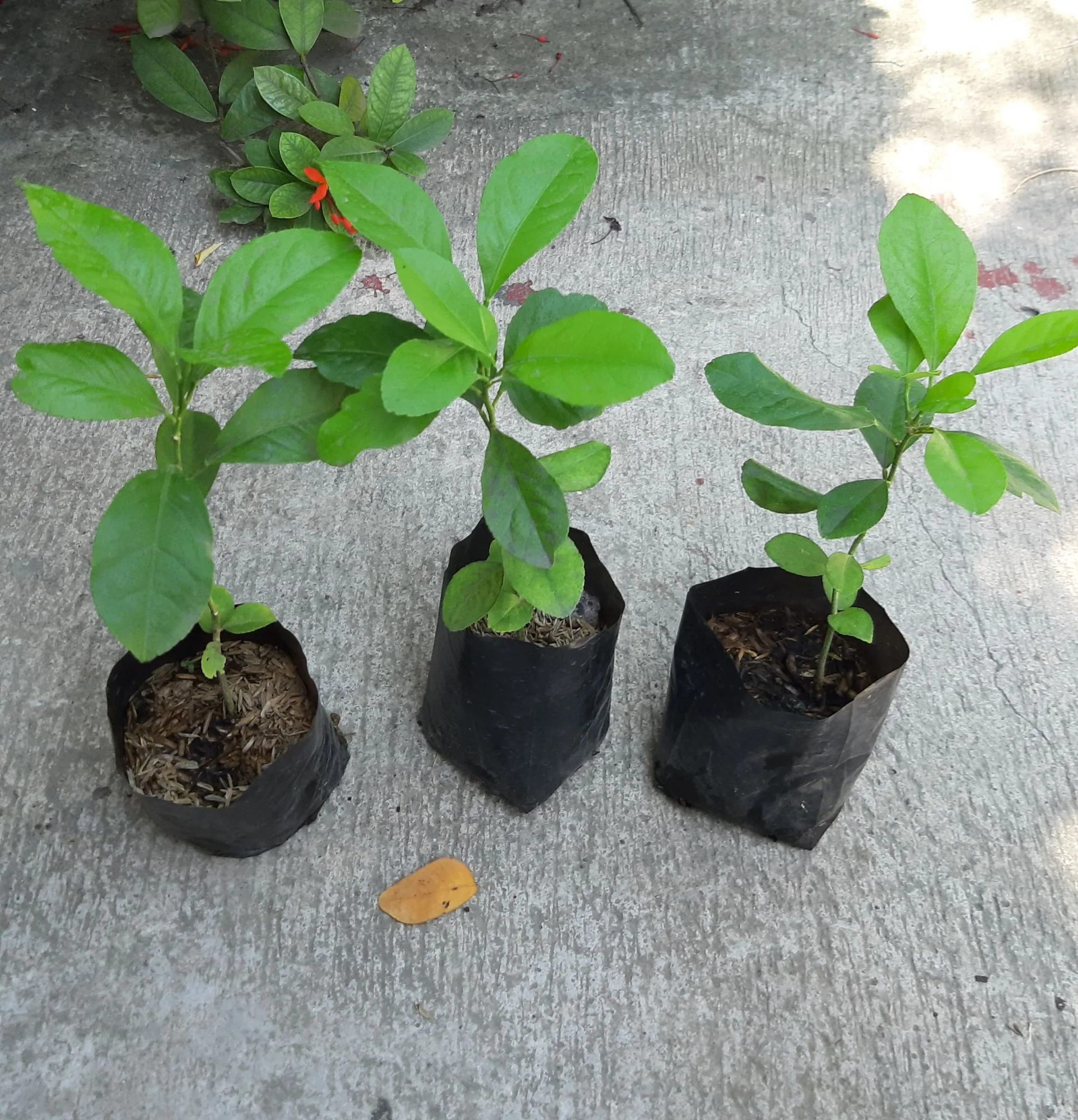Hybrid Indian Lemon Seedlings
₦5,995.00
Hybrid lemon seedlings offer growers the opportunity to cultivate lemon trees with improved traits and performance compared to non-hybrid varieties. With careful cultivation and management, these seedlings can produce high-quality fruit and contribute to successful citrus orchards for commercial production or home gardens.
- Ensure that the soil is damp
- Apply organic fertilizers intermittently
- Ensure you have everything needed in order to get the best out of your lemon seedlings
Hybrid lemon seedlings are young lemon plants that are grown from hybrid seeds. These seedlings are produced by cross-breeding two different lemon varieties to create offspring with desirable traits such as improved disease resistance, higher yield, better fruit quality, or tolerance to specific environmental conditions. Here’s an overview of hybrid lemon seedlings:
Characteristics of Hybrid Lemon Seedlings:
- Hybrid Origin:
- They are derived from the cross-pollination of two different lemon varieties, resulting in offspring that inherit traits from both parent plants.
- Improved Traits:
- Hybridization allows breeders to select for specific traits, such as disease resistance, fruit size, flavor, color, and overall productivity.
- Hybrid lemon seedlings may exhibit superior traits compared to non-hybrid varieties, making them desirable for commercial growers and home gardeners.
- Uniformity:
- They tend to display uniformity in growth habits, fruit characteristics, and overall performance, making them easier to manage and harvest in commercial orchards.
Advantages:
- Disease Resistance:
- Some hybrid lemon varieties are bred for increased resistance to common citrus diseases such as citrus canker, citrus greening (Huanglongbing), and various fungal infections.
- Higher Yield:
- They may produce higher yields of fruit compared to non-hybrid varieties, resulting in increased productivity and profitability for growers.
- Improved Fruit Quality:
- Hybridization can lead to improvements in fruit quality, including enhanced flavor, juiciness, and aroma, making the fruit more appealing to consumers.
- Adaptability:
- Certain hybrid lemon varieties may exhibit better tolerance to environmental stressors such as drought, heat, cold, or soil conditions, allowing them to thrive in a wider range of growing environments.
Cultivation:
- Site Selection:
- Choose a well-drained location with full sun exposure for planting hybrid lemon seedlings. Lemon trees prefer slightly acidic soil with good drainage.
- Planting:
- Dig a hole twice as wide and deep as the root ball of the seedling.
- Place the seedling in the hole and backfill with soil, ensuring the graft union is above the soil line.
- Watering and Fertilization:
- Keep the soil consistently moist but not waterlogged, especially during the first year of growth.
- Fertilize the seedlings regularly with a balanced citrus fertilizer according to package instructions.
- Pruning and Training:
- Prune the seedlings to promote a strong, open canopy structure and remove any dead, damaged, or crossing branches.
- Train the young trees to a desired shape (e.g., central leader or open vase) to encourage healthy growth and fruit production.
Tree Management:
- Fertilize your lemon tree using a vitamin B1 rooting tonic right after it’s been potted.
- After that, apply a slow-release fertilizer to the soil surface every year
- Trim the tree to encourage more fruiting.
Additional information
| Weight | 4.5 kg |
|---|







Reviews
There are no reviews yet.